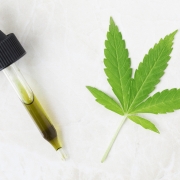McMaster discovers cannabis compound may be weapon in fighting superbugs
Scientists tested CBG on MRSA-infected mice and found it matched the efficiency of a widely used antibiotic.
A team of Ontario researchers have discovered that a cannabis-derived compound may be effective in killing drug-resistant bacteria.
Microbiologists from Hamilton, Ont.’s McMaster University explored the potential antibiotic properties of five cannabis-derived compounds. They discovered that CBG (cannabigerol) — the lesser-known sibling of more popular cannabinoids such as THC (tetrahydrocannabinol) and CBD (cannabidiol) — was capable of killing microbes such as methicillin-resistant Staphylococcus aureus (MRSA), a common but hard-to-treat superbug that is easily spread and commonly found in health care facilities.
“Unlike THC, which is both psychoactive and intoxicating, and CBD, which is psychoactive but non-intoxicating, CBG is believed to be non-psychoactive.”
Lab tests indicated the CBG destroyed not only MRSA microbes, but also the resulting “biofilms” that may form on medical implants and skin.
Based on its efficacy in lab tests, scientists tested CBG on MRSA-infected mice and found that the cannabinoid matched the efficiency of vancomycin, an antibiotic widely regarded as a final frontier in the fight against drug-resistant infections.
As promising as the results may seem, however, McMaster microbiologist and lead author Eric Brown noted that while cannabinoids are “clearly great drug-like compounds,” far more research is necessary before the results can be tested on human patients or applied in medical settings.
Read the full article at TheGrowthOp










Leave a Reply
Want to join the discussion?Feel free to contribute!